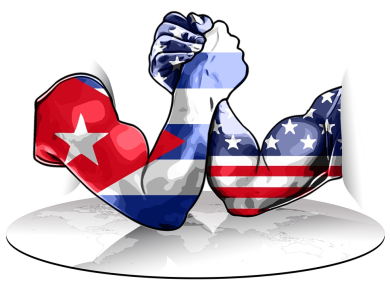US Blockade on Cuba Causes Record Losses During Coronavirus Pandemic

All Global Research articles can be read in 51 languages by activating the “Translate Website” drop down menu on the top banner of our home page (Desktop version).
Visit and follow us on Instagram at @crg_globalresearch.
***
Cuba’S economy lost more than $9 billion (£6.5bn) amid the coronavirus pandemic last year, due to the impact of the six decade-long US blockade, government officials said on Thursday.
The losses in 2020 were up from $5.6bn (£4bn) in 2019, according to Foreign Minister Bruno Rodriguez.
“The human damage, suffering and deficiencies caused to Cuban families are incalculable,” he said.
Cuba has lost some $754bn (£543bn) since the economic blockade was first imposed in 1962 by then US president John F Kennedy.
He intended it to strangle the nascent Cuban revolution and oust the government of Fidel Castro, which had swept the power in 1959 by overthrowing the US-backed Batista dictatorship.
The blockade was a retaliatory measure in response to the nationalisation of property carried out by the revolutionary government. Despite widespread international condemnation, it has remained in place ever since.
Former US president Donald Trump ratcheted up the pressure on the Cuban economy in 2019 by enacting title three of the so-called Helms-Burton Act, which, although passed into law in 1996, had been suspended by successive US administrations.
It placed severe restrictions on foreign companies, essentially banning them from doing business with Cuba on pain of US lawsuits for alleged “trafficking” if they failed to comply.
Last year, Washington was accused of an act of “Wild West brutality” after it used the Act to block a ship carrying vital medical aid from China from docking on the socialist island.
The supplies, including two million masks, 400,000 rapid diagnostic kits and 104 ventilators, were destined for some 24 countries, including Argentina, Brazil, Chile, Ecuador, the Dominican Republic and Peru.
Days before leaving the White House, the Trump administration placed Cuba on a list of state sponsors of terrorism, despite a lack of credible evidence.
Hopes of a shift in policy have been dashed by President Joe Biden, who has so far failed to remove Cuba from the list, despite promising a review, as his government pursues an increasingly aggressive foreign policy.
Last month, the State Department listed Cuba as among those countries “not co-operating fully with United States anti-terrorism efforts.”
Havana’s economic figures will be presented to the United Nations general assembly as part of an annual resolution condemning the blockade. The motion usually receives the support of all member states except the US and Israel.
*
Note to readers: Please click the share buttons above or below. Follow us on Instagram, @crg_globalresearch. Forward this article to your email lists. Crosspost on your blog site, internet forums. etc.

